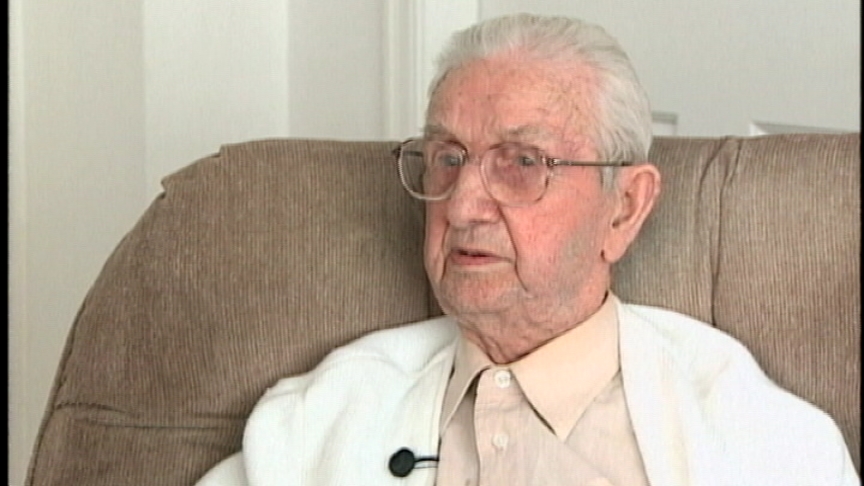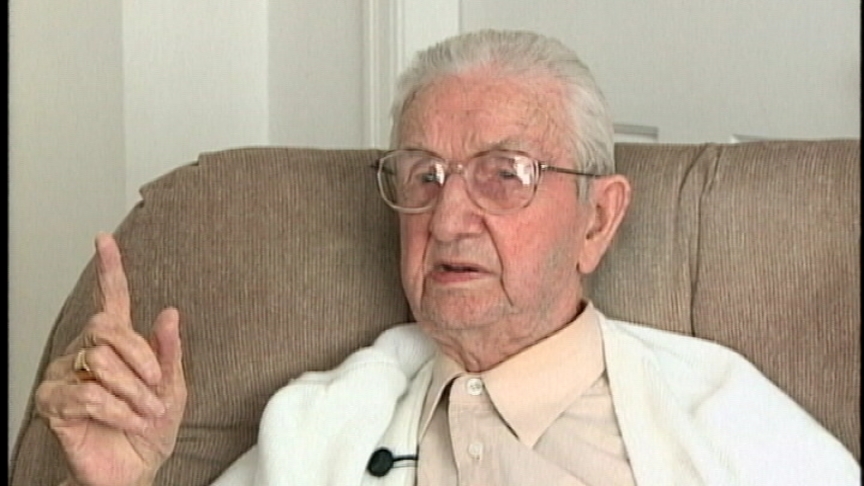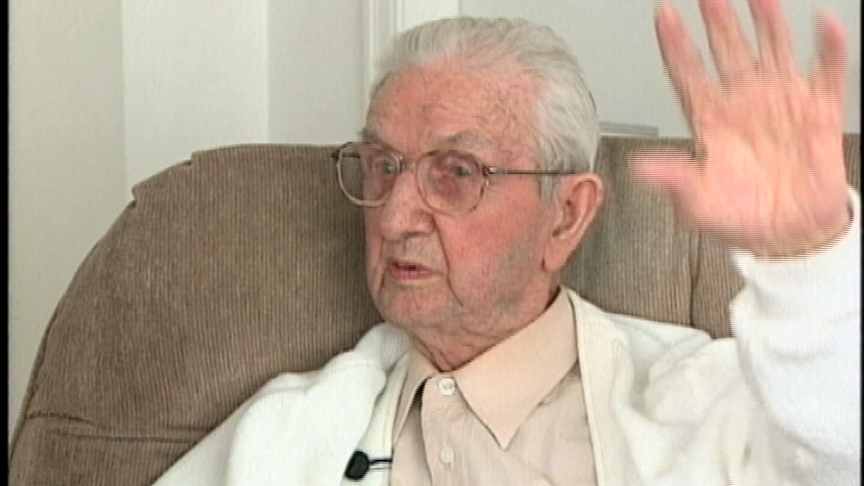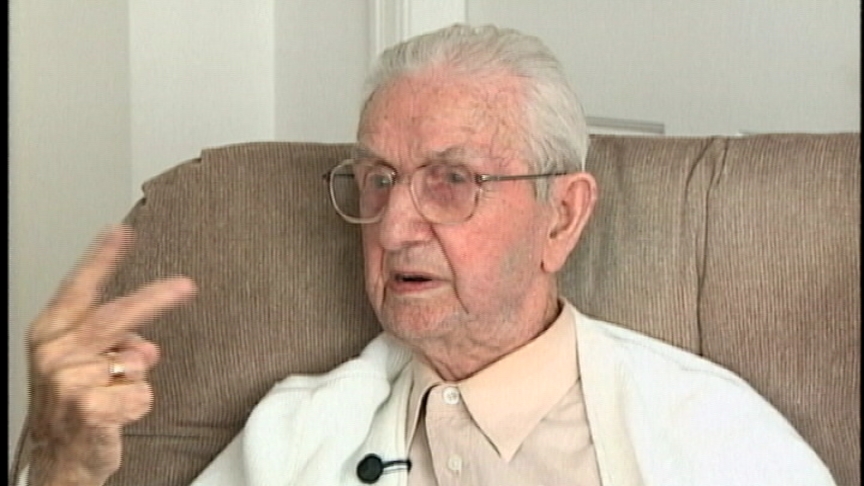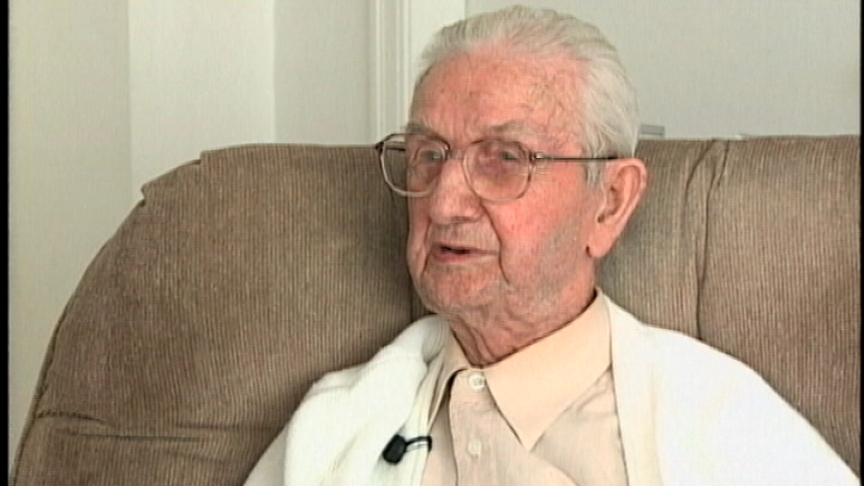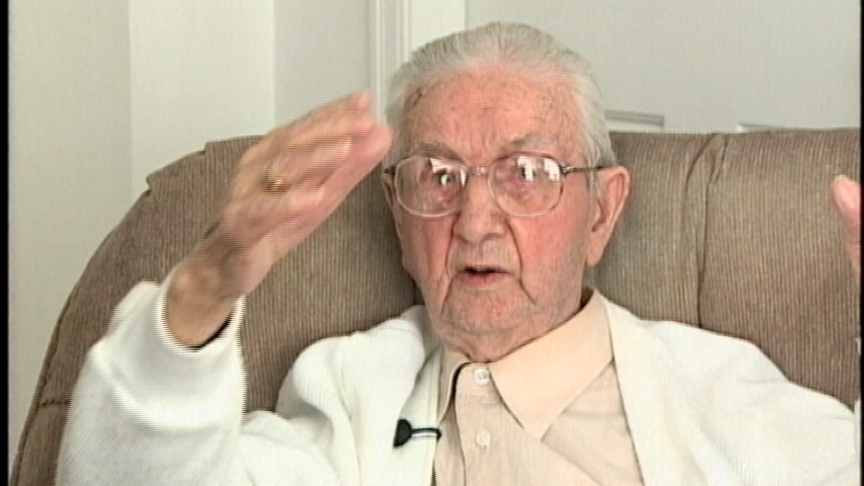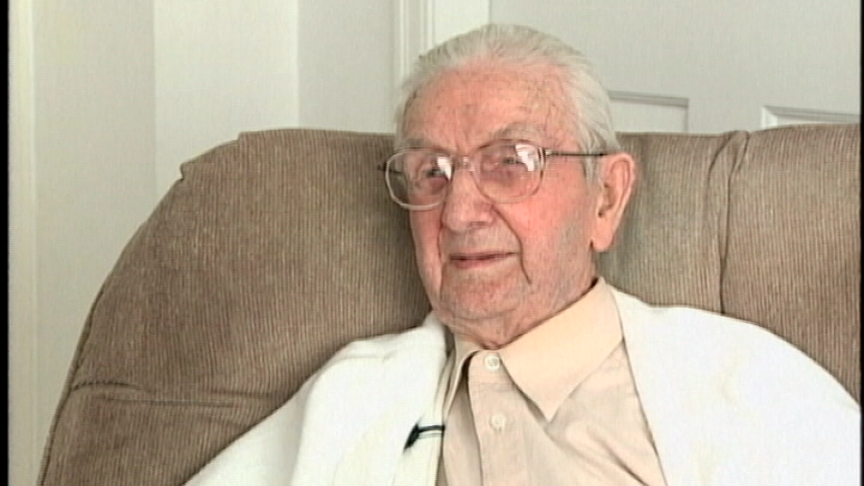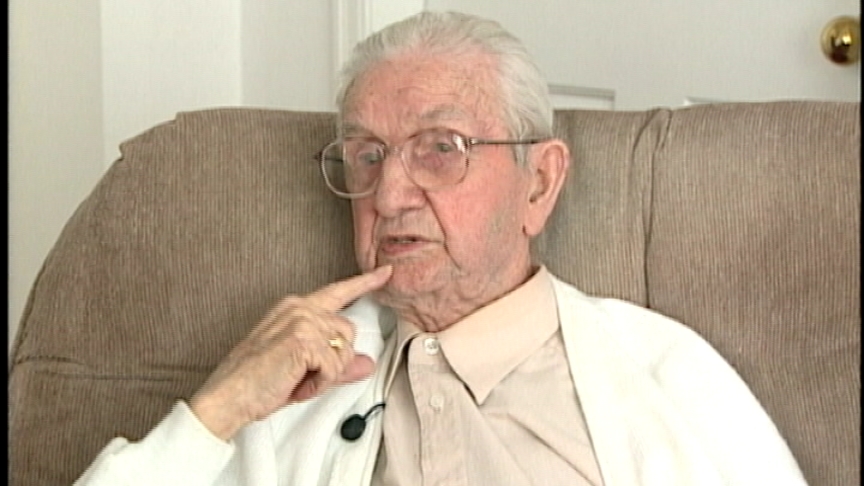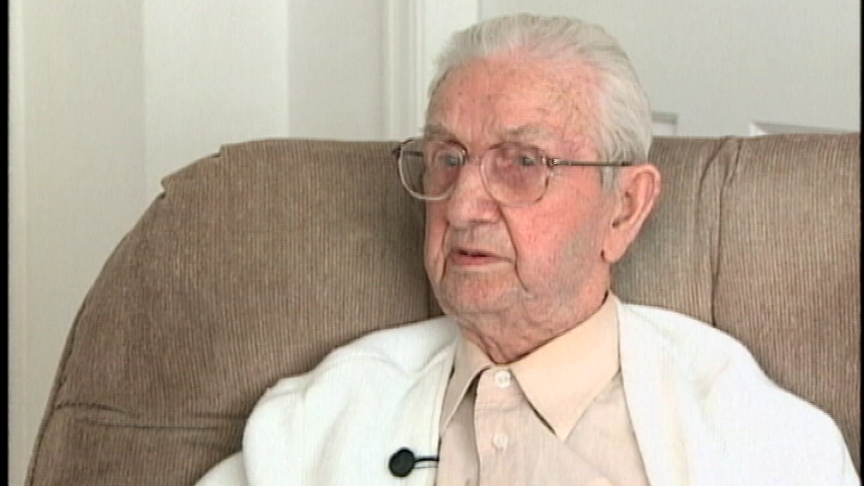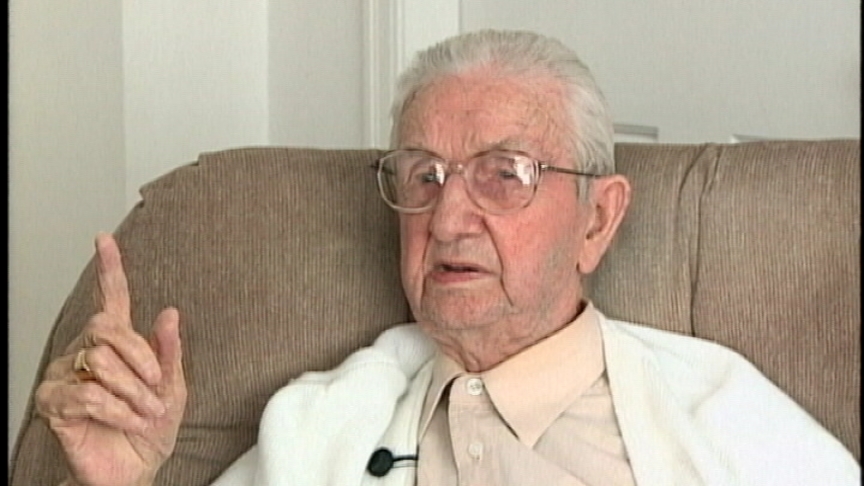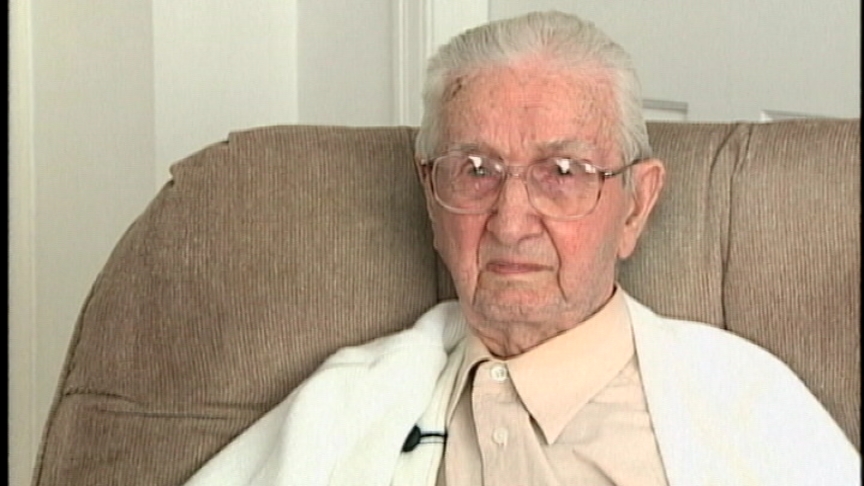Mail From Home
Heroes Remember
Mail From Home
Transcript
Description
Mr. Pitcairn describes the importance of mail from home, and his disappointment over not receiving enough letters himself.
James Pitcairn
James Pitcairn was born in Kirkintilloch, Scotland on May 3, 1897. The second of four children, he moved to Vancouver with his widowed mother in 1911. At the age of thirteen, he was working as an elevator boy when a truancy officer sent him back to school, which he attended for five years. In Vancouver, Mr. Pitcairn was twice denied enlistment because of his small size; however, he joined friends in Kingston, Ontario and was accepted there as a member of the 50th Battery, Queens Artillery on March 7, 1916. He trained as a horse artilleryman at Petawawa. Mr. Pitcairn sailed for England aboard the SS Olympia in August, 1916. He had further training at Camp Whitley and was finally sent to France as a member of the 52nd Field Artillery, 5th Division. Mr. Pitcairn’s service saw him in action at Lens, Vimy, Hill 70, Amiens, Drocourt-Queant and Valenciennes as the layer on an 18-Pound artillery gun. One hundred and two at the time of his interview, Mr. Pitcairn’s clear voice and photographic memory offer some very informative descriptions of the Artillery’s role in the First World War.
Meta Data
- Medium:
- Video
- Owner:
- Veterans Affairs Canada
- Duration:
- 1:39
- Person Interviewed:
- James Pitcairn
- War, Conflict or Mission:
- First World War
- Location/Theatre:
- England
- Branch:
- Army
- Units/Ship:
- 50th Battery
- Rank:
- Private
- Occupation:
- Gunner
Related Videos
- Date modified:



